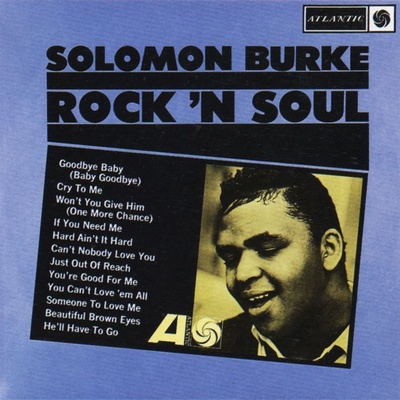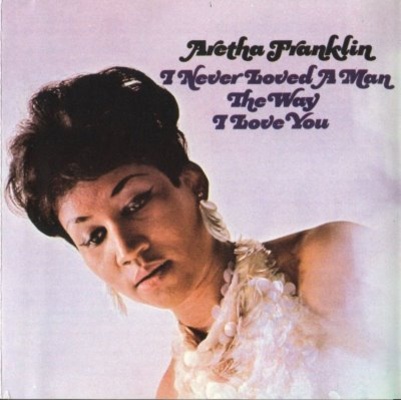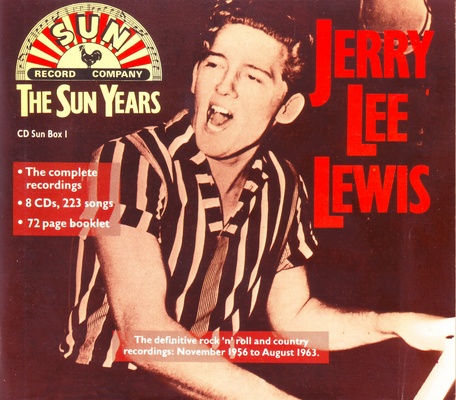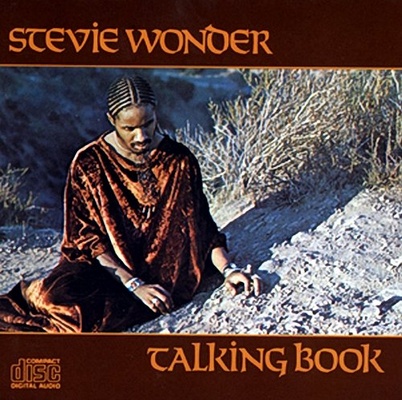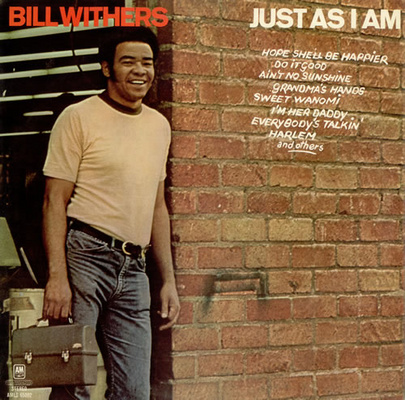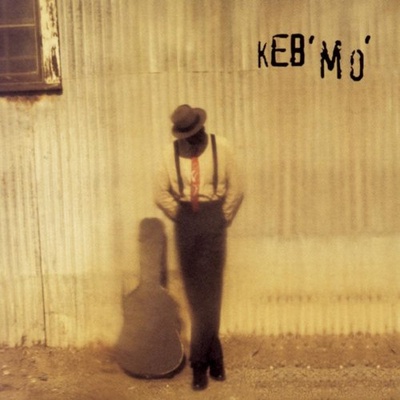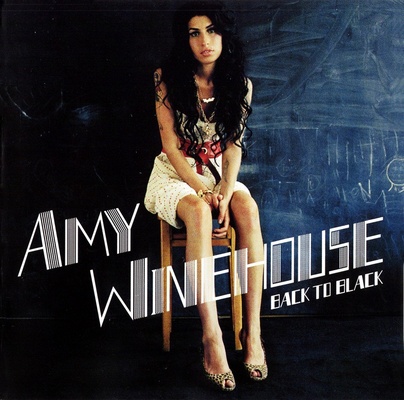With his new album, Spirit In The Room, on the way, Sir Tom Jones reflects on his favourite LPs and tells Laurie Tuffrey about his friends Elvis, Aretha and Stevie. Sir Tom has been a busy man of late. He's one of the judges on the BBC's TV talent show The Voice and he's made his acting debut, as a former teddy boy in the TV play Playhouse Presents... King of the Teds. This month, he'll release his thirty-eighth - yep, that's right, thirty-eighth - studio album, Spirit In The Room.
The new LP sees him continue down the elder-statesman-of-pop route he began on 2010's Praise & Blame, laying to one side the brassy Vegas productions of old and producing a set of stripped down covers. 'Finally, you know, I've got back to where I am, back to where I started,' he says. 'Simple, down-to-earth, in-your-face stuff, without having any of the big arrangements and things.' That famous tenor is put to good use on rootsy interpretations of Blind Willie Johnson's 'Soul Of A Man' and Tom Waits's 'Bad As Me', which get set alongside a gentle version of Richard and Linda Thompson's 'Dimming Of The Day', closing with a choral-inflected take on 'Charlie Darwin' by The Low Anthem.
And on top of all this, he's had to pick out his favourite thirteen albums. Although none of the album's covered artists appear in Tom's Baker's Dozen, his approach to music appreciation is unique, the kind that only a multi-millionaire singer with an address book that reads like a who's who of the good and the great of pop music can go for: 'If I like something, I would want to record it, and I've been able to do it, but not so much earlier as I can now. Which is very gratifying.'
His favourite albums, barring a trio of more recent LPs, are mainly early rock & roll and soul cuts. Solomon Burke and Little Richard are in there, as are Aretha Franklin and Stevie Wonder, and Sir Tom's old mate, Elvis. It did, though, come close to just being a run down of Jerry Lee Lewis's back catalogue: 'We didn't want this to sound too retro,' he explains of the Quietus list. 'You said give us thirteen albums, I said, 'Well, okay, Jerry Lee Lewis, parts 1, 2 and 3... parts 1-12!''
Big Bill Broonzy - Trouble In Mind
It was on the radio, I was just getting it, I was thinking, 'Fuck, what is that? Who is that?', it was so different. I would say 'Black, Brown and White' is my favourite song. It was played on BBC radio, and at the time - he said it himself - that he couldn't record it in America, so I think he recorded it in France, because they said it's too controversial. Even black friends of his said, 'Don't you stir up the shit here! We could get repercussions.' But I thought he put it... He was just stating a fact. He wasn't saying 'you white bastards' or 'the whites won't let us', he wasn't saying anything like that. It's just 'me and a man was working side by side, this is what it meant, they were paying him a dollar an hour and they were paying him 50 cents'. You know, he said, 'If you're white, you're alright, if you're brown stick around, but if you're black, get back.' Which I thought was tremendous.
 Little Richard - Little Richard’s Greatest Hits
Little Richard - Little Richard’s Greatest Hits
It's got all the classics on it: 'Good Golly Miss Molly', 'Rip It Up'. It's tremendous, when you put that thing on: from start to finish, it's boom all the way! First of all, I thought he was a girl, because I heard him do 'Rip It Up' and I'd heard Bill Haley & The Comets - they covered a lot of things where we didn't know what the originals were at first, but then you'd hear them - sometimes in movie houses funnily enough, like in Pontypridd, between films, they would play records. Sometimes they'd play the original American ones, but that's when I heard 'Rip It Up' by Little Richard. I thought, 'Some chick has covered Billy Haley & The Comets', but it was the original record. And then the same thing with 'Ain't That A Shame' - I heard the Pat Boon version before I heard Fats Domino. We never got to them that early - there was always somebody covering them first, getting the jump on it.
It definitely made me appreciate the songs more when I first heard it, no doubt about it. Americans - they're paranoid about the lyrics that might be a little risque. With Big Joe Turner, on his version of 'Shake Rattle and Roll', there's some - 'you're wearing those dresses, the sun comes shining through / I can't believe my eyes, all that mess belongs to you' - [laughs] well, they cut that back out straightaway! Bill Haley & The Comets: 'Wearin' those dresses, your hair done up so nice / you look so warm, but your heart is cold as ice' - they changed it.
Hank Williams - Hank Williams as Luke the Drifter
That's when he did all talking songs. He had this pseudonym, Luke the Drifter, but I remember it for 'Beyond The Sunset' and every track was where he sang a little bit, but he talked a lot. The earlier ones that I heard Hank Williams doing were the classic hits that he had, 'Cold Cold Heart' and 'Your Cheating Heart'. This one I came to later. I heard Hank Williams as Luke the Drifter first in America. When I first went to the States in 1965, I was finding albums in the Colony record shop, right in Manhattan.
It was the honesty of the songs - they were very well written, the lyrics, which were tremendous. That's what I liked about it and what I still do. The ones were he talks, that's another thing again. He went a step up there: it was great to hear him talk as well as sing. 'I Dreamed About Mama Last Night', that's a great song, just about life, talking and singing.
Solomon Burke - Rock 'n Soul
The first time I heard him was in London, it was 1964 and he had just come out with that album and I got it. It was in my manager Gordon Mills's Notting Hill Gate flat and he just had it because they used to send him stuff - things that I might like. There was this album, so I thought "Shit! This is tremendous" and recorded a bunch of the songs on there - 'If You Need Me' was one of the ones on the first album. Solomon was always my favourite soul singer, more than Otis Redding, Sam and Dave or Wilson Pickett. Solomon was a step above. He was more of a singer who happened to sing blues and gospel - you could tell that he came from the church, but he sang it better. Otis Redding used to get trouble with this throat - you could hear it in him. He was struggling to get out what he did. Wilson Pickett had great feel and great drive, but there was a roughness to his voice, and Solomon could be rough or sweet when he wanted to be, he could put his voice into different areas. And his range was huge - there's that track on it, 'Goodbye Baby, Baby Goodbye', he sings that in two octaves, which is tremendous. Real, very honest.
Elvis Presley - Elvis Presley
That first album, that sounds great to me. The first one we heard was ‘Heartbreak Hotel', because I don't think they ever released the Sun records - the RCA records came out first.
We had a great friendship - I met him in 1965 the first year I went to the States. He was doing a movie at Paramount Studios, and I was at Paramount to talk about a song for a movie and they said 'Elvis Presley is filming here today, and he heard that you're coming over, and he'd like to meet you.' Like to meet me? I tell you, I didn't even know he knew I existed. I had three singles out at the time: ‘It's Not Unusual', ‘What's New Pussycat?' and a ballad called ‘With These Hands', and he had the three of them. He was walking towards me singing ‘With These Hands' - [impersonates Elvis] 'with these hands'. And then he said, 'How do you sing like that?' And I said, 'It's your fault, you were partly to blame!' He said, 'Well, you know, I come from Mississippi, I was born there, I was brought up with this stuff. What's it like in Wales? Are there any black people there?' I said, 'Only when they come out of the coal mine! No, it's listening to American music on the radio - that's where I've got it from.' He couldn't believe that somebody could sing like me not being influenced first hand, like he was - the gospel thing, listening to gospel groups and blues clubs like that.
He preferred a lot of the later things that he did. I said, 'That early stuff on Sun Records, man, I mean jeez'. He said, 'Ah, it was very primitive - we didn't have very good equipment and it's a lot better now." And I said, 'But there's fire there', and he said 'I'm glad you think so." But he didn't do them on stage. I said, 'You want to open with them, open with ‘Blue Suede Shoes'.' But no, he wouldn't do it. Then one time, on his own special, he starts to go into some ‘Whole Lotta Shakin'' and then he goes on into another, and he said, 'We could do this all night', so you could see he was really wanting to do it. But he wasn't thrilled with those early recordings, he thought he made better records later on.
 Charlie Rich - The Many New Sides of Charlie Rich
Charlie Rich - The Many New Sides of Charlie Rich
'Mohair Sam' was one of the tracks on it - I recorded it on my first album because of hearing him do it. But I liked him before that - 'Lonely Weekends' was the first one I heard him sing. Heard it on the radio, on the BBC - some people had condemned the BBC because they didn't play enough of this or enough of that but at least you would get a smidgen of things coming through. I'd be getting records then from Spillers in Cardiff, but there was a shop in Pontypridd which was more local, called Freddy Feys, and I would get a lot of stuff in there. On another album later on, I did the song that was on The Many New Sides... called 'Field of Yellow Daisies' that his wife wrote, which I learned later - when I met him, he said “Thanks for recording that."
Aretha Franklin - Never Loved A Man The Way I Loved You
The rawness is what perked me up when I heard this first - and I've never forgotten that. You know, I've gotten a lot of her albums since, but that first one... There's an American singer called Nancy Wilson and the tone of their voices is very similar. When they first played it, I was driving back down to London from the north of England - it came on the radio and I thought, 'Thank God, Nancy Wilson has gone back to church.' You know what I mean, Nancy Wilson has got more soul, because the tones of their voices are very similar. But then they said 'this new singer, Aretha Franklin...' so I went out and bought the record in London.
Meeting her for the first time [Franklin appeared on This Is Tom Jones], Aretha was very quiet - unbelievably quiet. I mean you'd go 'Hello' and she'd say 'Hello.' 'How are you?' 'Fine thank you.' 'Great!' And that's it. And when we were doing the rehearsal, and she'd open her mouth to sing, the volume that came from this woman - how can a girl who's so shy and quiet - all of a sudden BOOM - burst?
Jerry Lee Lewis - The Sun Years
'Whole Lotta Shakin'', was the first time I heard him, in Pontypridd, being played from Freddy Fey's record shop. People used to ask me, because I loved music so much, 'What do you think of this record, what do you think of that record?' When Elvis Presley came out, I said he can't be the only one - a white man being influenced by black music in the South. So when 'Whole Lotta Shakin'' came out, my friends said, 'Is that what you're talking about?' I said, 'That's exactly what I'm talking about!' Another guy, playing piano, similar to what Elvis was doing, but even more syncopated, white and from the South. It was unbelievable to hear that record. Then 'Great Balls Of Fire' followed, and 'High School Confidential' was a great record.
When you listen to his records, he always sings up, except towards when he got older and the pressures of life got on him. In the beginning, he was always up, you know the ends of everything came up. Little Richard was pushing the shit out of everything but Jerry Lee, he had his syncopation, it was like he floated. He fell out of favour, because he married his cousin - it was a shame, he was still making great records. There's one called 'Loving Up A Storm' and that's equally good. That's on The Sun Years, they're all there.
I saw him live in Cardiff in 1962, and Johnny Kidd and the Pirates were there and they were slick... I thought, 'Shit, how's Jerry Lee going to get over this?', because they closed the first half. He came on, and instead of how Johnny Kidd and the Pirates were very aggressive, Jerry Lee was the opposite, he opened up with 'Move On Down The Line' and the band were like [sings] and he just walked on and was like [gestures] showing us the the chord he was going to play. He just sat down at the piano and - boom - went into it. It was like 'Jesus Christ!' You know, it was smooth, it was slick, it was rock & roll but he wasn't like, screaming - he had a different take on it and yet it was rocking.
Stevie Wonder - Talking Book
Great songs. I had it on 8-track in my car. I heard 'Fingertips' first, and I thought "Shit! Who's playing harmonica on that for a start off?" So those Motown records were happy records, great for dancing and parties and things. But then it got deeper, more personal, which is why I picked that record. I think people should try things and if you have something to say, something in you, then do it. That can happen in different times of your life, and I think for him, he had that to prove - you know he had done the jolly records, and wanted to get deep. And he did.
Favourite song would be 'Blame It On The Sun'. It was different, "but my heart blames it on me" - blame it on this, blame it on that, but at the end of that day, my heart blames it on me. I love clever lyrics... and its a simple story but the way he put it together was very clever.
Bill Withers - Just As I Am
I heard this on the radio in the States, and I loved the songwriting. He was coming up with something different, it was a soulful folk, so I went and bought the album in LA, I thought “I gotta hear what this guy does” and every bloody track on it is a gem.
I’ve always loved the sound of an album, maybe as much as the songs themselves, you know the performance, the sound of it makes a big difference to me. And now you know you can get box sets with alternate takes, and you realise then how long it took them sometimes to get the final take. The first time they did it was good, but then all of a sudden - boom - and there it is. I think there’s a good learning process to listen to the ones they didn’t let go, where the producers said “not yet”, and they persevered until... there it is.
When I’ve been in a club sometimes, I’ve gotten up [on stage] and they’ve been like, “Do ‘Delilah’!”, and I’ve said “Let me just do this, which I don’t normally do". So it is, because when you’ve made big records - great onstage, the way you do your own show - but it’s great to do other stuff when you don’t have to do those things. Not that I don’t like them, you know ‘Delilah’’s a great record, but its nice to do other things. So when you hear someone like Bill Withers doing something like that and being successful, you think, “See, there’s room for that.” There’s room for all different kinds of records. They don’t all have to be the same, or in the same vein, or chasing some things just to get a hit record.
Keb' Mo - Keb' Mo'
I was at my son's house in Henley, we were having dinner. Mark likes to play me things that he knows I'll like. So he didn't say anything, he just put it on. We were having dinner, and I hear ‘Am I Wrong' and I said, 'Who the hell is that?' He said, 'Who?' I said, 'What you're playing there!' 'Oh, a guy called Keb' Mo'.' So I said, 'Turn it up!' It's tremendous. [sings ‘Am I Wrong'] You just think, Jesus! Something that I haven't heard before, that first initial thing, is always the most exciting to me. I've heard him do other things since, but that, ‘Am I Wrong'... great. When I've listened to him singing, there's a similarity in our vocal tone and syncopation. When I was playing it in my house, funnily enough, back in LA - I play guitar, nowhere near as good as he does, but a few chords - so I'm playing it downstairs and my wife was up in the bedroom, and I said 'did you hear that thing I was playing?' She said 'you got your guitar out, right? It was you?' I said 'it's not me'. She said 'I heard you get your guitar out and start singing', I said 'no, it's not, it's a guy called Keb' Mo''. And she thought that it was me, and I thought, 'wow, that's great, that she thinks I can play as well as him'.
When she did the video of 'Rehab', I thought 'Jesus, what is that?' - again, that initial thing... I thought, 'shit, she sounds tremendous, who is this kid?' And it looked great, and the arrangement was great and the whole package was great, and I had to get the album. So I got the CD and it just got better and better. You hear her getting into the ballad, 'Love Is A Losing Game' - that's like a standard, that comes from a jazz standard, something one of the old jazzers would have done, that's how good that is. She nails the shit out if it. The whole album is tremendous, and it's just a shame - making an album like that and then nothing.
The band I take on the road with me is the same brass section that she used to use. So when she died, we were in France and I saw it on BBC news, and I came down to the bar that night and I said 'my God, how did that happen? She must have thought she was indestructible', and they said the opposite - she had loved living on the edge apparently, it was that thing of danger, that's what they felt. I wish I'd met her and had a chance to sing with her because she had a lot to offer, and she had a great spirit and what she sang was tremendous. I would have loved to duet. When you record something was somebody, it lasts forever, and if you haven't, it's a shame.
It's a shame that it [drug addiction] happened to her so early. With Whitney Houston, she's left a wealth of material to listen to, but Amy Winehouse, I know she did an album before that, but Back To Black is tremendous, you just think 'shit!' Just waiting for the next, and now there is no next and it's a bloody shame. The drug thing, it never appealed to me. Sniffing cocaine, I know what it does. For singers, it's death - it gets on your vocal chords, it's bad news. Burns your bloody nose out. I've never taken any drugs. The only thing I took was at the beginning, purple hearts, because I was doing so many shows and I was getting tired. I think it was Viv Prince, who used to be a drummer with The Pretty Things, who said, 'try one of these, that'll keep you awake', but then I realised you couldn't go to sleep! So that was a short-lived thing. And I'll take a sleeping pill when I've got to go to sleep and I know I need to get up, but mild ones, nothing heavy, because I don't want anything to get in the way of what I do. And when I've gone a little too far drinking and I think 'oh shit, I've got to get up tomorrow', then you see it, and you think 'you fucking idiot! You stretched it too far last night'. So you do that enough times and you learn, but some people don't learn.
Paolo Nutini - Sunny Side Up
I saw him on the Jay Leno show, and I thought 'wow, this is a good band'. It was like the Kings of Leon, southern rock, and he came on with that thing and I thought 'I wonder where this kid's from, he must be from the South somewhere'. And then when Jay Leno says 'that was great', Paolo says [adopts Scottish accent] 'thank you very much', and I thought 'he's fucking Scottish!' So it's great, but the album he did as well, that's great. I play that - there's so many great things on there. Again, it's fresh, it's different from other things, so I hope he can come up with more, because he writes as well. And Ethan John [Jones's producer for Spirit In The Room] produced the album, which I didn't know, when I heard the album. There's a jazz band thing, a traditional jazz band thing. 'Simple Things In Life', I like that, about going round to his mother's for tea, it's great. He paints a picture, you can see him do it. I saw him on the Jay Leno show, and I thought 'wow, this is a good band'. It was like the Kings of Leon, southern rock, and he came on with that thing and I thought 'I wonder where this kid's from, he must be from the South somewhere'. And then when Jay Leno says 'that was great', Paolo says [adopts Scottish accent] 'thank you very much', and I thought 'he's fucking Scottish!' So it's great, but the album he did as well, that's great. I play that - there's so many great things on there. Again, it's fresh, it's different from other things, so I hope he can come up with more, because he writes as well. And Ethan John [Jones's producer for Spirit In The Room] produced the album, which I didn't know, when I heard the album. There's a jazz band thing, a traditional jazz band thing. 'Simple Things In Life', I like that, about going round to his mother's for tea, it's great. He paints a picture, you can see him do it.
Laurie Tuffery May 17th - http://thequietus.com/articles/08750-tom-jones-favourite-albums?page=1



